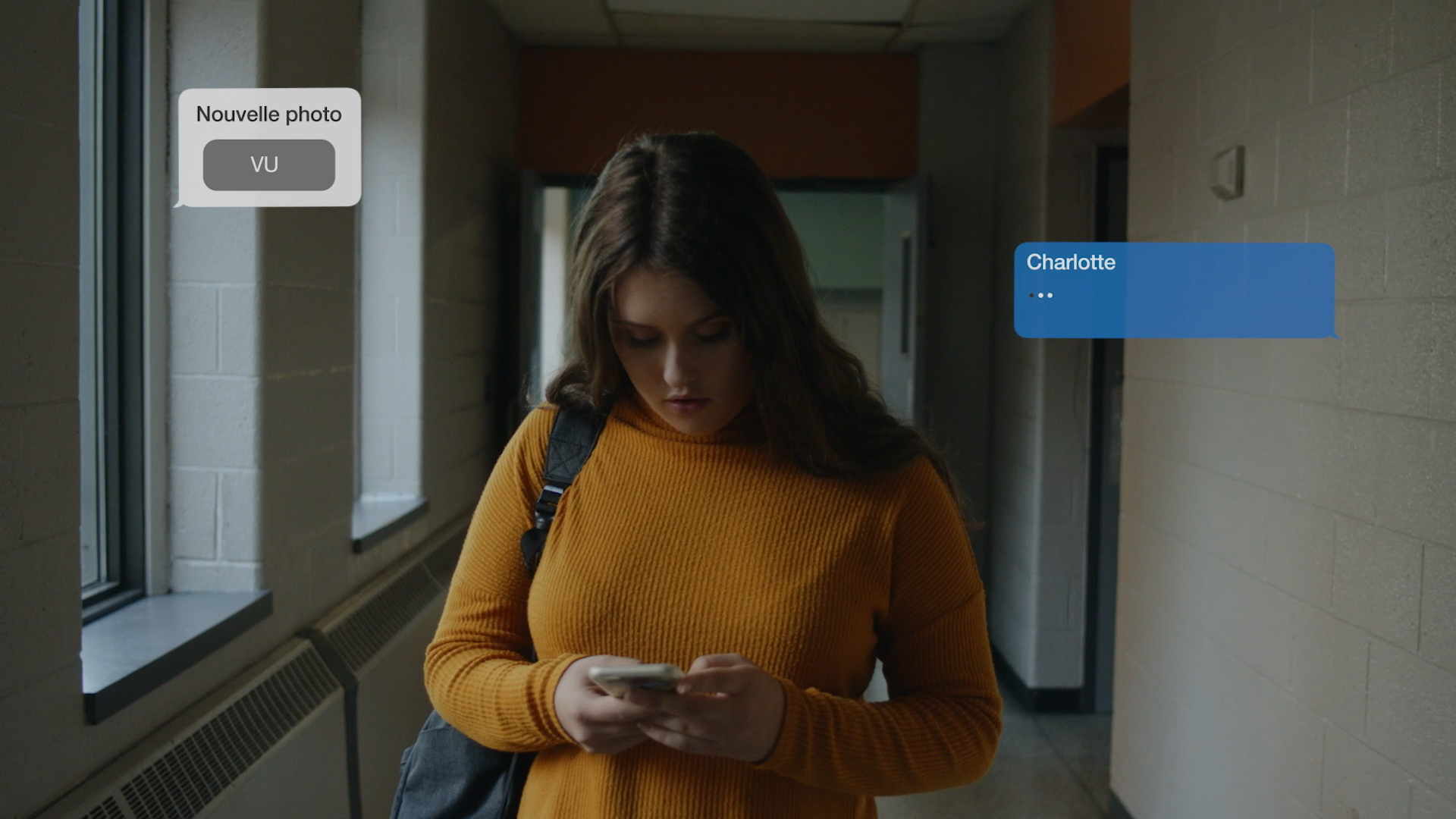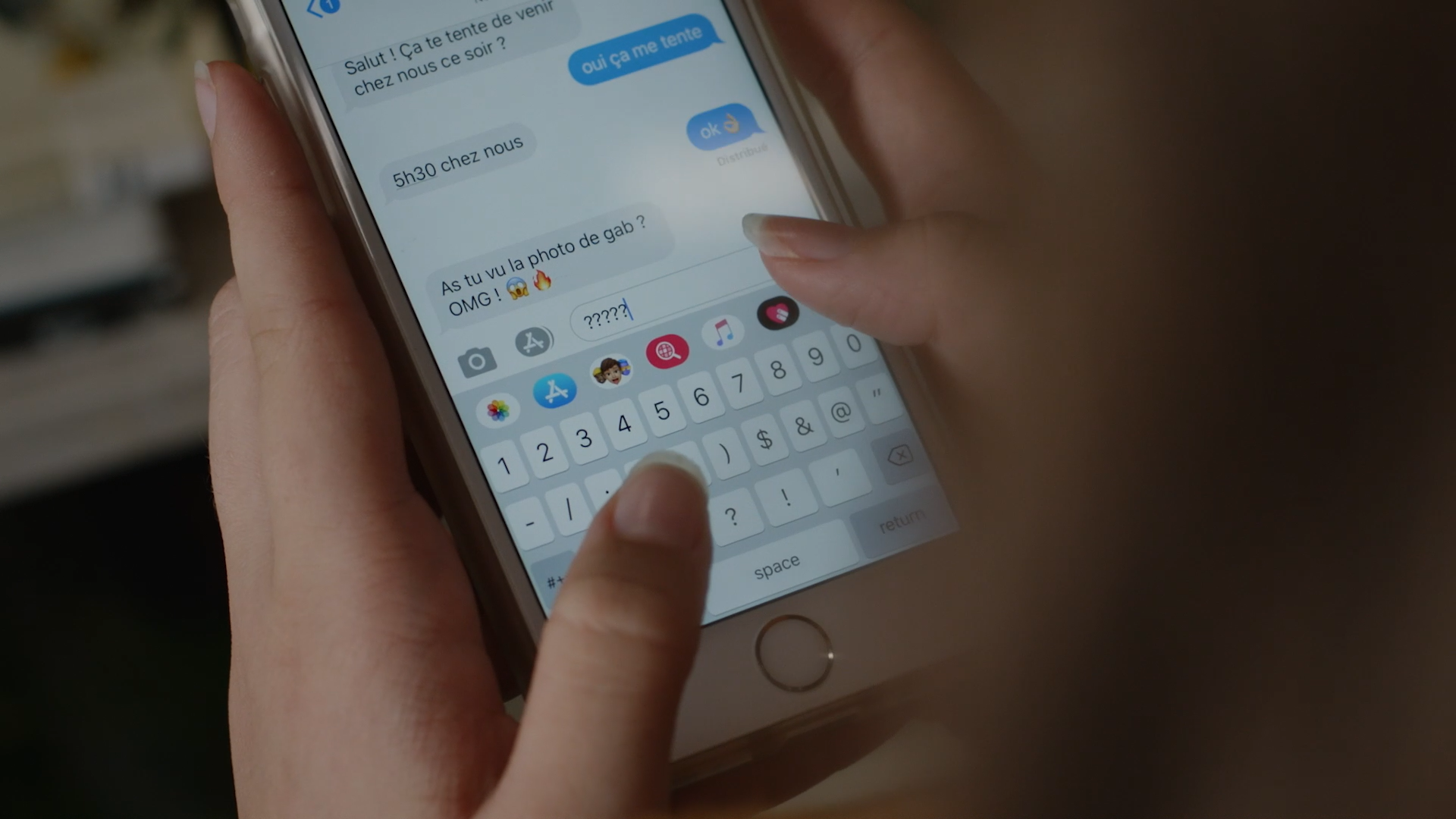This video and these parent-teen discussion guides are designed to help you talk with your adolescent about their technology habits and about preventing online sexual violence.



This video and these parent-teen discussion guides are designed to help you talk with your adolescent about their technology habits and about preventing online sexual violence.



Charlotte receives a text asking if she’s seen the photo of Gab. Since she hasn’t seen it, she tries to find out more, and asks a friend for details, without success. It seems like everyone’s talking about the photo that’s going around, which makes Charlotte curious. Finally, Charlotte gets the photo, and writes to Gab right away to share what she knows about the situation and ask what’s going on. We understand that the photo of Gab is circulating without consent. When a friend of Charlotte asks what she thinks of the photo, she says she hasn’t seen it and that it’s not important.




An intimate…
…or embarrassing photo?

– How did it go?
– What did the school staff do?
– The situation takes up a lot of space; people are curious and talk about it amongst themselves.
– It creates discomfort.
– For the person who’s photo is circulating, it’s overwhelming.
– They feel isolated, humiliated, stressed out, etc.
– They feel like everyone knows, everyone’s looking at them and everyone’s talking about them.
-They feel embarrassed and uncomfortable, and they don’t know how to act.
– The people who post or share intimate images of a person who hasn’t consented to it, or without finding out whether or not they’ve consented, could be accused of “Publication, etc., of an intimate image without consent” (Section 162.1 of the Criminal Code).
– The people involved could be accused of making, distributing, possessing or accessing child pornography (Section 163.1 of the Criminal Code).

– To not participate in the situation.
– To protect Gab.
– To stop the rumour cycle.
– Once the photo is in someone else’s hands, you’ve lost control of it.
– The photo can be shared without your knowledge, right away or months later (after a difficult breakup, if the cellphone is stolen, etc.).
– The photo can be posted online, making it very hard to get it deleted.
– There are also legal issues to consider (criminal charges).
– Report the photo and the person who’s sharing it in the app.
– Delete the photo.
– Not share the photo.
– Make sure the victim is aware of the situation, and offer them support.
– Talk about what happened with a trusted adult.
As a parent, you’re a major player in your teenager’s education, particularly when it comes to sexuality. You act as a model by conveying your values and sharing everyday life with them. By talking about these topics with your teen, you’re building a trusting relationship and a climate of openness when it comes to sexuality, which helps protect them from sexual violence.


Taking the time to talk with your teenager about subjects that concern them is an effective way to position yourself as a trusted adult they can turn to in case of distress or other need.
Do you have questions, an emergency situation, or just need to talk?
La Ligne Parent is a 24/7 professional help line that’s free for parents: 1 800 361-5085 (in French).
When risks related to technology use are brought up, many teenagers believe that this phenomenon does not apply to them. This article details how you can help improve your teen’s safety skills, specifically by bringing them to recognize manipulation tactics
Getting teens to stop playing in their online world is a source of conflict within many families. Here's a few tips to avoid conflicts.
Video games are popular among young people. Not only do they spend hours playing, many teens watch videos of their favourite players on platforms such as Twitch or YouTube.